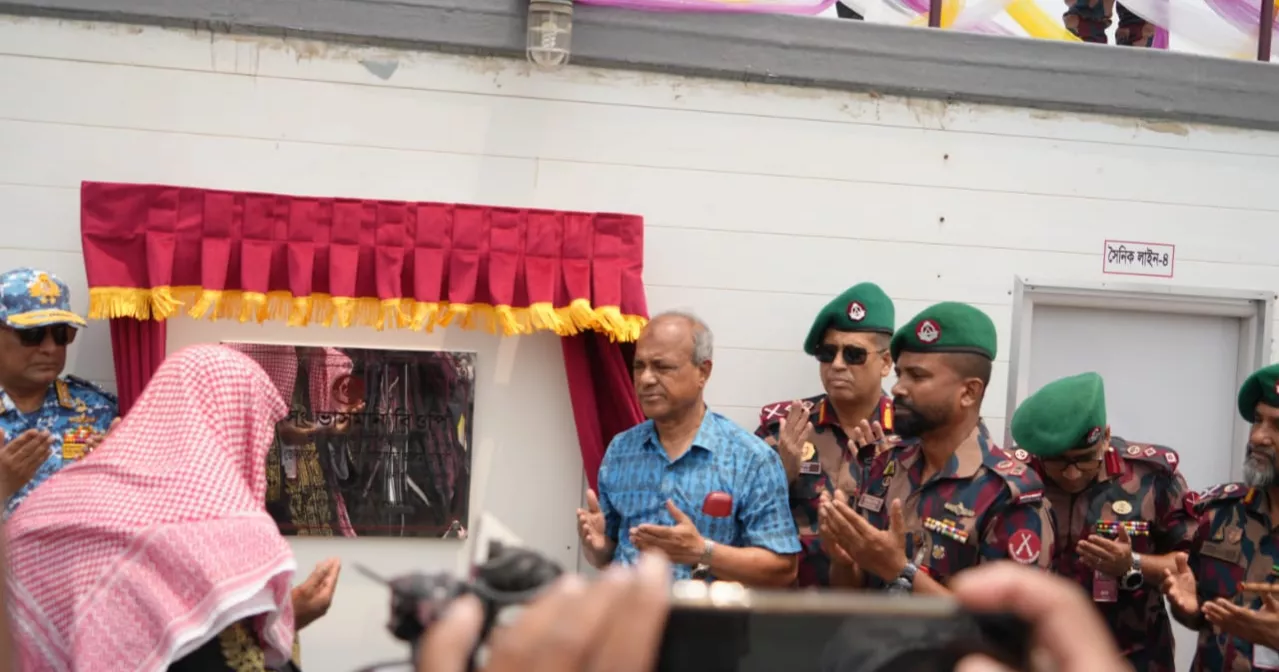Home Affairs Adviser Lt Gen (Retd) Jahangir Alam Chowdhury on Saturday said Bangladesh does not resort to push-ins like India, as it remains committed to resolving border issues through diplomatic channels.
“Bangladesh believes in a diplomatic solution to prevent the push-in problem through various borders by India. Bangladesh has always adhered to international laws and protocols. We have already written a letter to India through the Ministry of Foreign Affairs to resolve this issue,” said the adviser while speaking to reporters after inaugurating a new floating Border Outpost (BOP) in Shyamnagar upazila of Satkhira.
He further informed that Foreign Affairs Adviser Md Touhid Hossain and Dr Khalilur Rahman, the Chief Adviser’s High Representative for Rohingya Issues and Priority Affairs, have been maintaining diplomatic communication with Indian counterparts to address the issue.
The home adviser stated that Bangladesh has formally requested India to return any illegal Bangladeshi nationals through official channels. “If any Indian nationals are found staying illegally in Bangladesh, they will be repatriated through proper procedures. We have clearly told India not to carry out push-ins and instead use the proper diplomatic channels,” he said.
Referring to a recent escalation in push-in attempts following the demolition of a Bengali settlement in Gujarat, where some Bangladeshi Rohingyas had taken shelter, he said, “Among those being pushed in, some are UNHCR-registered card-holding Rohingyas, while others are Indian Rohingyas. We have lodged a formal protest with India.”
When asked whether Bangladesh would reciprocate with a push-back of 370 individuals following India’s push-in of the same number, the adviser responded, “If they are our citizens, we have no legal right to push them back. We do not believe in push-backs. Repatriation must be carried out through proper legal procedures.”
On the newly inaugurated facility, the adviser said the floating BOP will significantly enhance riverine patrols and surveillance capabilities of the Border Guard Bangladesh (BGB).
“This floating BOP is not merely an installation — it is a strategic step forward in strengthening border security and reflects BGB’s commitment to maintaining peace, stability, and public safety,” he said.
He further said the initiative will usher in a new era of effective border management, particularly in water-bound regions.
Plans are also underway to establish a specialised “Riverine Border Guard Battalion” under the BGB, aimed at enhancing monitoring and security across water borders, especially in the Sundarbans. “This will be a landmark step in future border management,” he noted.
The floating BOP is expected to strengthen BGB’s capacity to counter cross-border crimes including smuggling, human trafficking, and other illegal activities.
Of the 4,156-kilometre Bangladesh-India border, around 180 kilometres are riverine, including approximately 79 kilometres within the Sundarbans.
Two floating BOPs have already been set up at Kachikata and Atharobeki. The new outpost marks the third of its kind.
Director General of Bangladesh Coast Guard Rear Admiral Mohammad Ziaul Haque and BGB Director General Major General Mohammad Ashrafuzzaman Siddiqui were also present at the inauguration ceremony.


